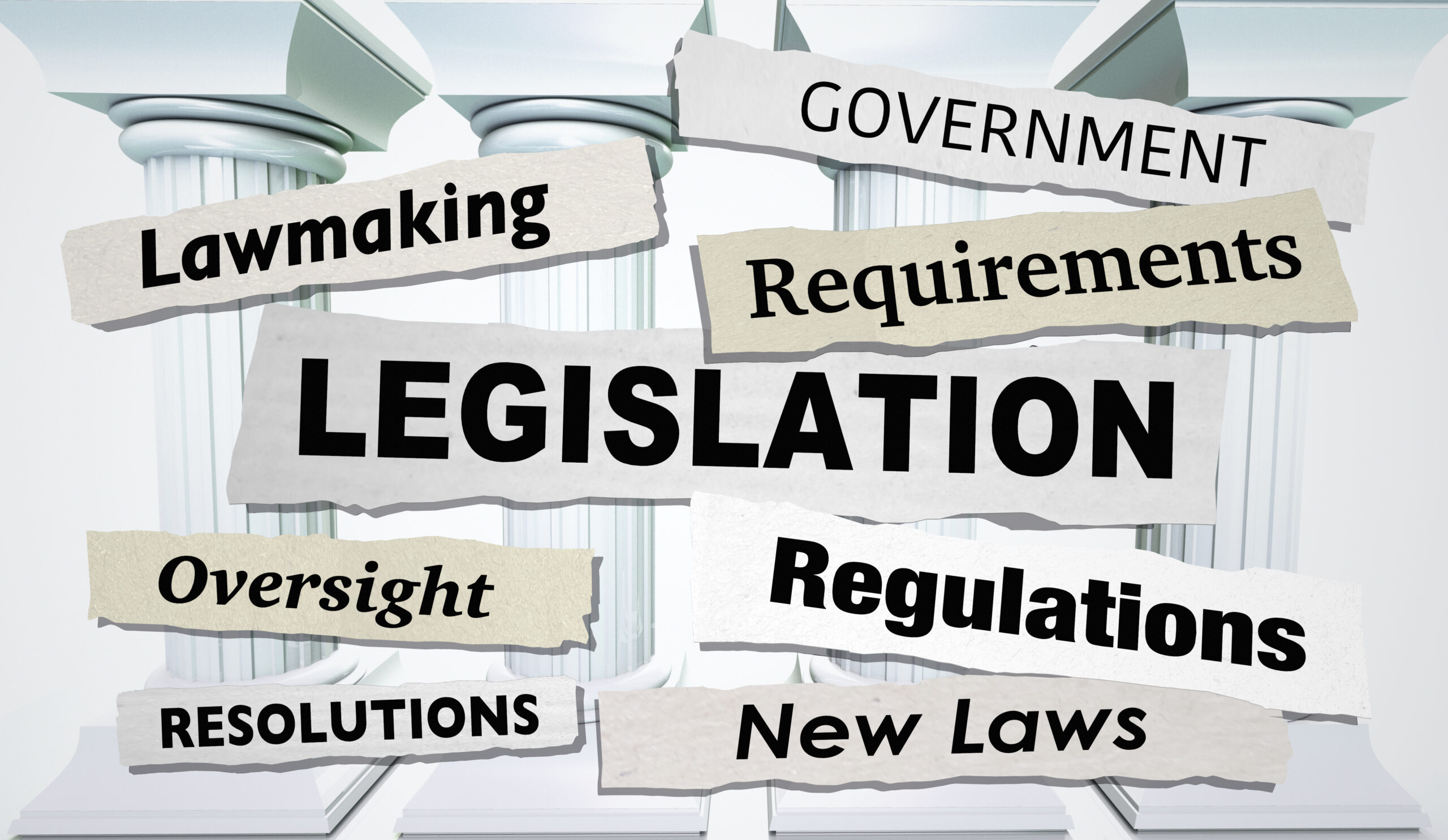As reported last week, this legislative session is packed full of pending bills with far reaching changes to land use controls and local control of such. In Part 1, we discussed some of the most significant bills introduced impacting the California Environmental Quality Act (CEQA), the State Density Bonus Law, and removal of an only in San Francisco allowance to appeal a building permit after a qualifying residential project receives entitlement. Here, in Part 2, we discuss significant bills introduced related to housing, parking, accessory dwelling units (ADUs), and other land use-related policies.
Accessory Dwelling Units
Since their introduction into housing nomenclature by former Bay Area lawmaker Senator Bob Wieckowski (D-Fremont) in 2016 with SB 1069 along with companion AB 2299 (Bloom), ADUs have become somewhat of a darling child in the housing production world. Over the years, several bills have passed intended to increase the production of ADUs. A few include a package – AB 68 (Ting), AB 587 (Friedman), AB 670 (Friedman), AB 671 (Friedman), AB 881 (Bloom), and SB 13 (Wieckowski) – enacted in 2019 and another pair of bills from 2022 – AB 2221 (Quirk-Silva) and SB 897 (Wieckowski). This year, we see proposals for further relaxation of controls on ADUs, including:
- AB 1033 (Ting) would allow a local jurisdiction to permit condominiumization and sale of ADUs separate from the primary residence.
- AB 1332 (Carillo) would require jurisdictions, by April 2025, to publish six sets of permit ready floor plans (studio, 1-bedroom, and 2-bedroom, in both standard and reverse formats) for detached ADUs.
- AB 1661 (Bonta) would remove the requirement that an ADU be individually metered for electrical and gas service and allow for an ADU to use existing or upgraded meters on the property.
- AB 976 (Ting) would make permanent an existing prohibition to imposing an owner-occupancy requirement on an ADU that sunsets January 1, 2025.
- SB 477 (Committee on Housing) would create a new Government Code chapter to house state ADU regulations.
Constitutional Amendments
There are two noteworthy Constitutional Amendments being proposed this legislative session.
ACA 1 (Aguilar-Curry) Affordable Housing Bond Approval Threshold. Would lower the necessary voter threshold for approving affordable housing bonds from a two-thirds supermajority to 55%. This appears to be a set up for a forthcoming affordable housing bond (AB 1657, Wicks), slated to go before the voters in fall of 2024.
ACA 10 (Haney) Housing a Fundamental Right. Would amend the Constitution to declare that the state recognizes the fundamental human right to adequate housing for everyone in California. The amendment would impose a shared obligation on the state and local jurisdictions to respect, protect, and fulfill this right, by all appropriate means, including legislative action.
Relaxing of Parking Controls
In recent years, there has been an effort to reduce minimum parking controls. Last year, AB 2097 (Friedman) removed a local jurisdiction’s ability to impose any minimum parking requirements on residential or commercial development located within one-half mile of public transit (as defined). This year there is a trio of bills that will further relax parking controls local jurisdictions may impose:
- AB 1317 (Carrillo) would require landlords to “unbundle” parking costs from rent from leases or rental agreements for residential property commencing or renewed on or after January 1, 2024.
- AB 1308 (Quirk-Silva) would prohibit a local jurisdiction’s ability to increase the applicable minimum parking requirements of a single-family residence as a condition of approval to remodel, renovate, or add to a single-family residence.
- AB 894 (Friedman) would allow properties with underutilized parking (as defined) to share spaces with other users, which would count toward meeting any automobile parking requirement.
Housing Policies
AB 1485 (Haney) Attorney General Right To Intervene in Actions Involving Violations of State Housing Laws. This bill would grant the Attorney General an unconditional right to intervene in any lawsuit filed over a potential violation of an enumerated list of state housing laws, including, among others, the Housing Accountability Act, Housing Crisis Act of 2019, and the Density Bonus Law.
AB 1532 (Haney) Streamlined Office to Residential Conversions. This bill would allow by-right, ministerial office to residential conversion projects statewide and limit fees and design requirements that local governments can impose on conversions. It would also allow an applicant to pay applicable impact fees over a ten-year period. It includes a skilled and trained workforce requirement. This bill has been converted to a two-year bill and we will likely not see any movement on it until next year.
AB 1633 (Ting) Housing Accountability Act Protection Extended to CEQA Review. This bill would expand the Housing Accountability Act’s definition of “disapprove the housing development project” to include any instance when a local agency fails to issue an exemption, fails to adopt a negative declaration or addendum for the project, or certify an environmental impact report or another comparable environmental document.
AB 281 (Grayson) Streamlining Post-Entitlement Permits. This bill would extend the post-entitlement permit timelines created by AB 2234 (2022, Rivas) to special districts. AB 2234 imposes the following timelines for review of post-entitlement applications for housing projects: (1) for projects with 25 units or fewer, a local agency shall complete first review and comment within 30 days of an application completion; and (2) for projects with 26 or more units, a local agency shall complete first review and comment within 60 days of an application completion.
AB 821 (Grayson) General Plan Consistency. This bill would provide that, in the event a local jurisdiction fails to amend a zoning ordinance to be consistent with the general plan within 90 days of receiving written notice of the inconsistency, a proposed development project cannot be deemed inconsistent with that zoning ordinance and cannot be required to be rezoned, if there is substantial evidence that (1) the proposed project is consistent with objective general plan standards and (2) the zoning for the project site is inconsistent with the general plan.
AB 919 (Karla) Stable Homes Act – Tenant Opportunity to Purchase. This bill would require a residential property owner, including owners of single-family homes, to (1) provide notice of their intent to sell the residential real property to each tenant and qualified entities and (2) allow each qualified entity ten days to give notice of interest and either 60 or 40 days to submit an offer to purchase to the owner. For a single-family residential property, the qualified entity must provide existing tenants eighteen months to purchase the entire residential property or to purchase improvements if the underlying land is to be retained by a community land trust.
SB 294 (Weiner) Minimum Floor Area Ratio Limits. This bill would expand the minimum floor area ratio (FAR) standards under state law that currently only apply to projects providing up to 10 units, to apply to all housing projects. The bill would prohibit municipalities from imposing an FAR limit less than 2.5 on housing projects providing 11-20 units. For housing projects over 20 units, it would prohibit an FAR limit less than 1.25 for every ten units.
SB 423 (Weiner) SB 35 Extension and Expansion. This bill would permanently extend SB 35 (2017, Weiner), which is currently set to expire January 1, 2026, and expand its applicably as discussed below:
- Eligibility. This bill would allow SB 35 projects (1) in the coastal zone and (2) on wetlands or protected habitat if authorized by any other state or federal law. It would also apply in cities that have failed to adopt complaint housing elements as determined by HCD.
- Labor Standards. This bill would remove the skilled and trained workforce requirement. Instead, the requirement to pay prevailing wages will remain, and on projects over 50 units, contractors would be required to offer apprentices employment and cover health care expenditures.
- Clarifications. This bill clarifies that the planning director or other equivalent local government staff is required to make determinations about compliance with the objective planning standards, all departments required to weigh in on a project before granting entitlement must do such within SB 35’s time parameters (60 or 90 days depending on project size), prohibits the local government from requiring consultant studies to evaluate consistency with objective planning standards, removes references to public oversight from the design review process, and prohibits requiring compliance with any standards necessary to receive a postentitlement permit for purposes of the SB 35 approval.
SB 450 (Atkins) SB 9 Amendments. This bill would amend SB 9 (2021, Atkins), the fourplex/urban lot split legislation that took effect last year, by:
- Removing the limitation on demolition of more than 25% of the existing exterior structural walls to be eligible for ministerial approval;
- Prohibiting a local agency from imposing objective standards that do not apply uniformly to development within the underlying zoning or do not relate to the design or improvements of a parcel;
- Removing the ability of a local jurisdiction to deny a SB 9 project if the building official makes a written finding that the proposed housing development project would have a specific, adverse impact on the physical environment;
- Requiring the local agency to approve or deny a SB 9 application within 60 days from receiving a completed application; and
- Requiring the local agency to provide a full set of comments to the applicant with a list of items that are defective or deficient and a description of how the application can be remedied by the applicant if it denies an application.
AB 1218 (Lowenthal) SB 330 Amendments. This bill would tweak SB 330 (2019, Skinner) by extending the protected unit demolition and replacement controls, which currently only apply to housing development projects, to projects that are not considered housing developments. This bill would also place the restrictions on demolition of protected units and replacement requirements into a separate provision that will apply permanently, which otherwise would become inoperative on January 1, 2030.
Land Use-Related Policies
SB 466 (Wahab) Rent Control Reform – 15-Year Look Back. This bill would amend Costa Hawkins to allow municipalities to apply rent control to properties that were issued a certificate of occupancy more than 15 years before the date the owner seeks to establish the rental rate. It would also remove the exemptions for properties that are alienable and separate from title to any other dwelling units, meaning rent control could be applied to single family homes and condos.
SB 745 (Cortese) Water Demand Reduction. This bill would require the California Building Standards Commission to propose mandatory building standards to reduce the potable water demand of new buildings by 25% from current mandatory design requirements and to minimize the use of potable water for nonpotable uses. The bill would require the Commission to adopt mandatory building standards for new buildings to be designed to capture graywater and use alternative water sources for nonpotable building and landscaping water uses.
SB 83 (Weiner) Electrical Grid Connection. This bill would require electrical utilities to connect, aka energize, a development project to the electrical grid within 8 weeks of the project being ready for interconnection (previously known as receiving a “green tag”). An alternative time period may be set and applies if an issue specific to the project or project site arises that would prevent the utility from safely completing the interconnection. This bill would further require a utility to compensate a development project applicant for failing to meet either the 8-week or the alternatively-set time period.
Authored by Reuben, Junius & Rose, LLP Attorneys Justin A. Zucker and Sabrina Eshaghi.
The issues discussed in this update are not intended to be legal advice and no attorney-client relationship is established with the recipient. Readers should consult with legal counsel before relying on any of the information contained herein. Reuben, Junius & Rose, LLP is a full service real estate law firm. We specialize in land use, development and entitlement law. We also provide a wide range of transactional services, including leasing, acquisitions and sales, formation of limited liability companies and other entities, lending/workout assistance, subdivision and condominium work.




